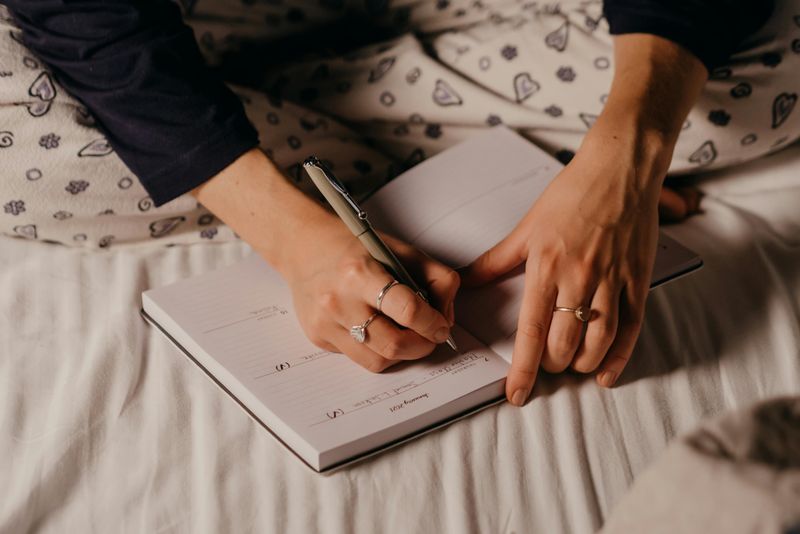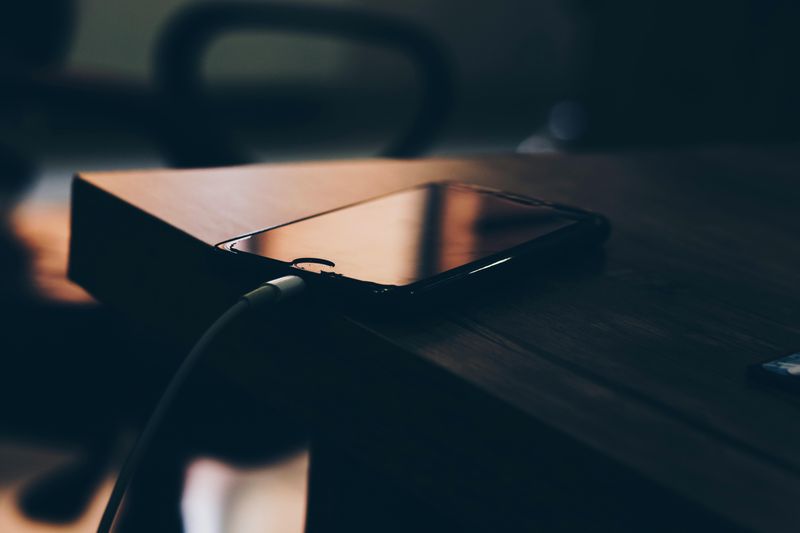Mornings can feel like a chaotic race against the clock, leaving us frazzled before the day truly begins. But what if your mornings could be calm, organized, and even enjoyable? The secret lies not in what you do when you wake up, but in how you prepare the night before. These evening habits create a foundation for smoother mornings, helping you start each day with confidence instead of confusion.
1. Set a Tech Curfew
Blue light from screens tricks your brain into thinking it’s still daytime. Establishing a firm tech cutoff time—ideally 60-90 minutes before bed—signals to your body that it’s time to wind down.
During this screen-free period, your brain begins producing melatonin naturally, leading to deeper, more restorative sleep. You’ll wake feeling genuinely refreshed instead of groggy.
Place your phone in another room and use an old-fashioned alarm clock instead. This prevents middle-of-the-night scrolling and removes the temptation to check emails first thing upon waking.
2. Brain-Dump Your Thoughts
Racing thoughts can sabotage both evening relaxation and morning clarity. Taking just five minutes to jot down tomorrow’s concerns, ideas, and to-dos creates mental space and prevents 3 AM worry sessions.
The physical act of transferring thoughts to paper signals completion to your brain. Your subconscious can stop working overtime to remember everything, allowing deeper rest.
Keep a dedicated notebook by your bed—nothing fancy required. The simple practice of writing “done for today, ready for tomorrow” after your list creates powerful psychological closure.
3. Practice Evening Relaxation
Your body remembers tension from the day unless you deliberately release it. Gentle stretching targets tight shoulders, neck, and hips—where we store stress physically—and signals to your nervous system that danger has passed.
Even five minutes of deep breathing activates your parasympathetic system, lowering cortisol levels naturally. Try the 4-7-8 method: inhale for four counts, hold for seven, exhale for eight.
For especially busy minds, guided meditation apps offer short sessions specifically designed for evening wind-down. The key is consistency rather than duration—three minutes daily beats thirty minutes occasionally.
4. Review Tomorrow’s Schedule
Morning surprises rarely bring joy. Taking two minutes to glance at tomorrow’s calendar prevents the heart-dropping moment of remembering an early meeting while brushing your teeth.
Mentally walking through your day creates unconscious preparation. Your brain begins problem-solving overnight, making decisions feel easier when morning arrives.
Pay special attention to timing transitions between activities. Note when you’ll need to leave for appointments, factoring in realistic travel time. This simple awareness dramatically reduces morning time-pressure panic and helps you wake up feeling confidently prepared.
5. Identify Your Top Three Priorities
Morning decision fatigue leads to procrastination and wasted time. Rather than facing a mountain of equal tasks, pre-selecting your three most important objectives creates immediate morning momentum.
Write these priorities on a sticky note placed where you’ll see it first thing—perhaps on your bathroom mirror or coffee maker. The physical reminder bypasses morning mental fog.
Being specific matters tremendously. Rather than “work on project,” write “draft introduction paragraph for Henderson proposal.” This clarity eliminates the need to make decisions when your willpower reservoir is lowest.
6. Prepare Your Work Bag
Morning rushing often leads to forgotten items and mid-commute panic. Gathering everything—laptop, charger, notebooks, lunch, gym clothes—the night before eliminates this stress entirely.
Position your fully packed bag by the door or in your car. This single habit can save 5-10 frantic morning minutes and prevents the frustration of arriving somewhere without essential items.
Maintain a small emergency kit in your bag with items like pain relievers, stain remover, and phone charger. This preparation provides peace of mind knowing you’re ready for unexpected situations without morning scrambling.
7. Lay Out Complete Clothing Sets
Decision paralysis hits hardest in the morning. Choosing tomorrow’s outfit—down to undergarments, accessories, and shoes—eliminates countless micro-decisions when you’re at your mental weakest.
Check the weather forecast to ensure appropriate choices. Nothing derails a morning faster than realizing it’s raining and your selected shoes can’t handle puddles.
For extra morning ease, arrange clothes in the order you’ll put them on. This thoughtful evening habit saves precious mental energy and prevents the common time-waster of trying multiple outfits while the clock ticks mercilessly forward.
8. Simplify Breakfast Preparation
Nutritious breakfasts fuel productive mornings, but preparation time often leads to unhealthy shortcuts. Overnight oats, chia puddings, and pre-chopped fruit parfait ingredients waiting in the refrigerator make healthy choices the easiest option.
Set out non-refrigerated items like breakfast bowls, spoons, and supplements on the counter. This visual cue reminds you of your plan and removes cabinet-searching friction.
For families, create a self-serve breakfast station where even children can assemble their morning meal. Teaching kids this independence reduces parent stress while building valuable life skills and morning confidence.
9. Pack Nutritious Lunch and Snacks
Assembling lunch during evening cleanup flow takes far less time than morning preparation. Portioning leftovers directly into lunch containers while putting away dinner creates effortless next-day meals.
Pre-washed, pre-cut vegetables and fruits in grab-ready containers eliminate excuses for not packing healthy options. This preparation prevents both morning time stress and midday energy crashes from poor food choices.
Keep a dedicated lunch bag section in your refrigerator where everything goes. Morning-you simply needs to transfer the entire collection to your bag—no decisions or assembly required when you’re rushing to leave.
10. Fill Your Water Bottle
Morning hydration jump-starts metabolism and brain function after hours without water. Preparing a full water bottle in the evening—perhaps with added lemon slices or cucumber—makes immediate hydration effortless.
Place this bottle somewhere unmissable: your nightstand for immediate waking sips, or beside your coffee maker as a reminder to hydrate alongside caffeine. This small habit prevents the mid-morning headaches often mistaken for caffeine withdrawal.
For all-day preparation, fill a larger bottle or multiple containers to track your daily intake. Starting this system the night before creates a visual reminder of your hydration goals before the day’s distractions begin.
11. Arrange Medications and Vitamins
Forgotten morning medications can range from inconvenient to dangerous. Setting out prescription medications, vitamins, and supplements the night before creates a visual reminder impossible to miss.
Use a dedicated container placed somewhere in your morning path—perhaps beside your toothbrush or coffee maker. This positioning links the habit to existing routines, dramatically increasing consistency.
For those taking multiple medications, weekly organizers eliminate daily decision-making entirely. This system provides peace of mind knowing you’ve taken exactly what’s needed without morning double-checking or accidental skipping.
12. Complete a Quick Tidy-Up Session
Waking up to yesterday’s mess creates immediate mental friction. A 10-minute evening reset—dishes cleaned, counters wiped, living areas straightened—provides the gift of morning calm to future-you.
Focus on high-visibility areas that impact morning mood most: kitchen surfaces, entryway clutter, and bathroom counters. Perfect cleanliness isn’t the goal—just enough order to prevent morning frustration.
Make this reset a family affair with a quick “closing time” routine where everyone handles their own contributions to household chaos. Children as young as three can participate, building lifelong habits while reducing parent workload.
13. Create a Sleep-Friendly Environment
Environmental factors dramatically impact sleep quality and morning mood. Adjusting your bedroom temperature to the ideal sleeping range (65-68°F/18-20°C) before bed prevents disruptive night awakenings.
Dimming lights throughout your home 60-90 minutes before sleep signals your brain to begin melatonin production. Consider warm-toned lamps or candles instead of harsh overhead lighting during this wind-down period.
Remove visual clutter from bedroom surfaces to create mental calm. Studies show messy sleeping environments contribute to restless sleep and morning anxiety, while ordered spaces promote feelings of control and morning optimism.
14. Prepare Morning Beverages
The ritual of morning coffee or tea provides comfort and signals day-beginning. Setting up your coffee maker with grounds and water, or arranging tea bags beside a filled kettle, removes morning friction when you most need simplicity.
Programmable coffee makers take this a step further—the aroma of brewing coffee can actually motivate getting out of bed. For tea drinkers, electric kettles with timing functions provide the same convenience.
Consider preparing specialized options like cold brew coffee or herb-infused water the night before. These small luxuries create morning moments to look forward to rather than a day to dread.
15. Ensure Devices Are Charging
Battery anxiety creates real morning stress. Establishing a dedicated charging station where all devices—phone, laptop, headphones, watch—automatically go before bed prevents both battery emergencies and frantic searching.
Cable management matters for this habit’s sustainability. Labeled chargers or color-coded cables eliminate confusion and speed up both evening setup and morning gathering.
Consider keeping backup power banks charged as part of this routine. This preparation provides peace of mind for busy days when regular charging might be difficult, removing one more potential morning worry.















